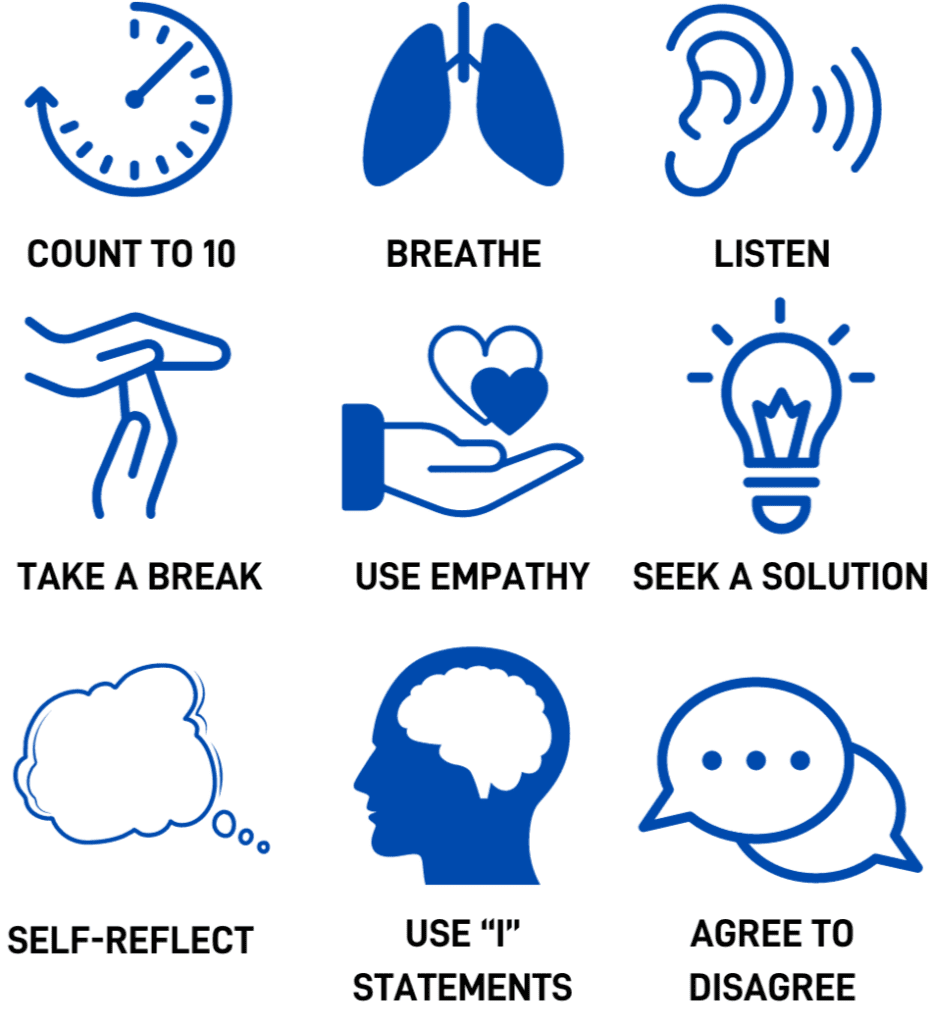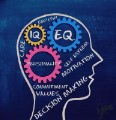Executive Corner – Listen Before You React
Michael Clegg | 10/18/2023
We often find ourselves navigating through moments that demand our immediate attention.
How we navigate these moments, however, can make the difference between a regrettable knee-jerk reaction and a thoughtful, empowered response.
Reacting in the Blink of an Eye is a Fight or Flight Response (aka, Survival Mode)
A reaction is the spontaneous burst of words or actions fueled by the beliefs, biases, and prejudices lurking within our unconscious minds. It’s the impulsive response that arises “without thinking,” often driven by survival instincts and defense mechanisms—i.e. in high-emotion situations.
We’ve probably all been in the heat of the moment in an argument with someone and we say something that we don’t mean.
Although reactions may sometimes turn out okay, they frequently lead to regrets. Reacting fails to consider the long-term effects of our words and actions, leaving us at the mercy of underlying assumptions we may not even be aware of.
The reason for this is that when our emotions rise, our rational thinking sinks.

By continuing to stay in a high-emotion conversation, rather than taking a step back to evaluate, our emotions will continue to restrain our logical thinking. This could cause unintentional turmoil and damaged relationships.
Another way to think about reaction versus response is to visualize the two as a little “r” and big “R”. This emphasizes the difference between a measured, intentional response (big “R”) and an impulsive, instinctive reaction (little “r”).
The big “R” implies a thoughtful and conscious reply to a situation, involving consideration and reflection before acting. In contrast, the little “r” signifies immediate, often emotion-driven reactions that occur without a deliberate thought process. This analogy encourages individuals to shift from automatic, knee-jerk reactions (little “r”) to purposeful and considered responses (big “R”), fostering greater control, mindfulness, and effectiveness in navigating various scenarios.
Stop, Listen, and Think Before You Respond

On the contrary, a response is a more deliberate and thoughtful interaction with the world. It unfolds slowly, drawing upon information from both the conscious and unconscious mind.
A response requires more self-awareness than a reaction, taking into account not only our well-being but also the well-being of those around us. It aligns with our core values, weighing the long-term implications of our choices. While reactions and responses may outwardly appear the same, they carry distinct feelings—one born from instinct, the other from introspection.
In Daniel Kahneman’s book “Thinking, Fast and Slow,” he introduces the concepts of System 1 and System 2 thinking. System 1 operates automatically and quickly, relying on intuition and heuristics. The rapid, unconscious thought process often leads to snap judgments. This is the part of our brain called the “Lizard brain.” It’s where our survival system for fight or flight sits. When humans weren’t on top of the food chain, and there were saber tooth tigers that we were prey to, these senses were critical to survival. In contrast, System 2 involves deliberate and conscious thinking, requiring effort and cognitive resources. This system is slow, analytical, and is engaged in more complex problem-solving. Kahneman demonstrates how these two systems work in tandem, with System 1 providing quick, instinctive responses, while System 2 is called upon for more deliberate and reasoned decision-making.
Consider the Panhandler Paradox
Imagine you’re walking down the street, and a panhandler approaches you. If you give money out of fear, embarrassment, or guilt, it’s a reaction. In contrast, if you give money from a genuine desire to help, it becomes a response aligned with your values.
Similarly, choosing not to give money out of fear or anger is a reaction, while abstaining due to a thoughtful decision on where your resources can make a more significant impact is a considered response.
Our unconscious mind often operates independently to ensure our survival. However, this instinctual drive can conflict with our conscious goals. To harness the power of the unconscious as a productive partner, we must spend time understanding and realigning it with our desires.
Unearthing limiting beliefs and negative emotions allows us to tap into the intuitive wisdom our unconscious mind holds.
Living Responsively: A Practical Approach
The best way to become more aware and respond (not react) to situations is to pay attention to moments that feel off-center. Pausing before reacting, taking a deep breath, and allowing ourselves the space to respond empowers us to make choices that resonate with our values.
By understanding the interplay between our conscious and unconscious minds, we can navigate the complexities of human interaction with mindfulness and intention. Remember, in the pause between stimulus and response lies the key to a more empowered and fulfilling life.
Source: Psychology Today
Want more leadership-focused content?




